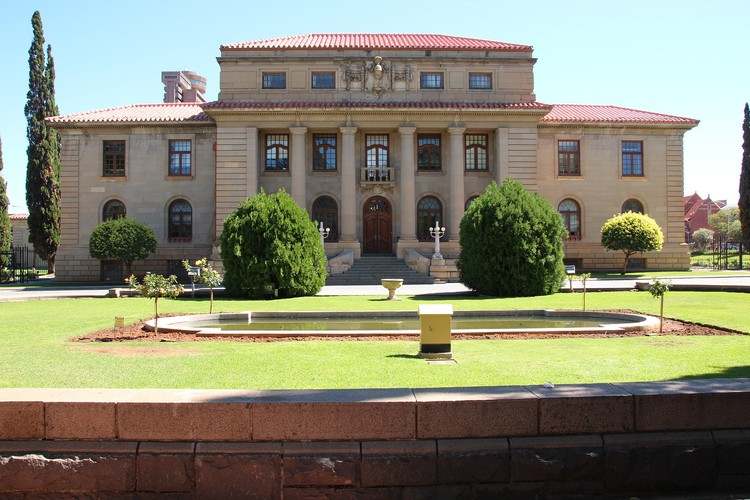What is a fair price for expropriated land?
Supreme Court of Appeal has to decide hotly contested issue
Can landowners be compensated less than the market value for their land when it is expropriated for their labour tenants? This question came before the Supreme Court of Appeal (SCA) on 1 September.
Labour tenants work for farmers in exchange for the right to live on the farm. During apartheid this system was used to deprive black workers of land rights. The Land Reform (Labour Tenants) Act attempts to redress this inequity.
The Act enables labour tenants to acquire land they worked on as labourers from their former employers (landowners) through the state expropriating land from landowners. Essentially, the state facilitates the transfer of the land to the labour tenant by expropriating the land from the landowner and providing compensation to the landowner in return.
The case concerned the Msiza family’s attempts to own land in Rondebosch, Cape Town. Amos Msiza began working on the land in 1936 and worked for approximately 67 years. In 1996, Msiza lodged a claim for land under the Act. In 2004, the Land Claims Court (LCC) upheld his application and ordered that he be awarded a certain portion of the land.
However, the state and the landowners were unable to agree on the amount of compensation to be awarded to the landowners. The decision was left to the Land Claims Court. It found that an amount of R1.5 million would constitute just and equitable compensation.
During the proceedings the LCC found that the correct market value of the land as determined by the agricultural use of the land was R1.8 million. Therefore the award made by the LCC was at least 16.6% less than the market value of the property. Ordinarily, when determining the amount of compensation to be awarded, the LCC makes use of the so-called two-step approach. According to this approach, a court must first determine the market value and then proceed to adjust this amount according to the other factors listed in the property clause. The LCC found, however, that in land reform cases it may be justifiable to award less than the market value of the property. The landowners appealed against this decision in the SCA.
The key issue is what constitutes just and equitable compensation for expropriation under the Constitution. Section 25 of the Constitution provides guidance using several factors including market value, the history of the acquisition of the property and the current use of the property. The particular point of contention was how the market value of the land should be determined and how much emphasis should be placed on this value.
The landowners contended that the market value of the property should be determined by its potential as a township development. However, the land is presently used for agricultural purposes. If the township development option is used as the basis for market value then the landowners are at least entitled to R4.6 million.
The landowners accepted that market value alone cannot be the sole factor to determine the amount of compensation to be awarded. However, they argued that in this particular case, there is insufficient evidence before the court to award less than the market value as compensation. Most notably, the owners argued that courts should not “over-emphasise the role of land reform” when calculating compensation.
Agri SA, a federation of agricultural associations, also made submissions to the SCA as a “friend of the court”. In strong criticism of the LCC’s decision, Agri SA argued that market value is the only factor in the Constitution’s property clause that can be used to obtain a numerical value for the price of land. Other factors, such as the historical acquisition of the land or the purpose of the expropriation, cannot be given objective values and should therefore be given less weight.
Agri SA was also concerned that an award of less than market value might make it harder for farmers to get financing. This would possibly drive them out of business and damage the agricultural sector and, in turn, food security.
The Msiza family, represented by the Legal Resources Centre, argued that the award of compensation should be about striking a fair balance between the constitutional promise of land reform and the private interests of landowners.
The LRC criticised the two-step approach on the grounds that, if market value is the main concern, this can undermine efforts to speed up land reform. It argued that the correct approach would be to rather let the transformative purpose of land reform play a central role in determining what is just and equitable compensation.
Also, the LRC pointed out that if one compares the price the landowners paid for the land when they bought it with the amount they are being awarded, they will make a significant amount of profit. And, the LRC argued, compensation should not be a profit-making exercise that depletes scarce state resources.
It will now be up to the SCA to decide how compensation should be determined and how much emphasis should be placed on the market value of the land. The case has far-reaching implications given the approximately 11,000 land claims still awaiting adjudication.
In making its decision, the SCA has to attempt to strike a fair balance between the constitutional objective of land reform on the one hand and the need to compensate landowners for the loss of their property on the other. All of this has to take into account a historical legacy of unequal land ownership which has been insufficiently changed, 23 years into democracy.
Support independent journalism
Donate using Payfast

Don't miss out on the latest news
We respect your privacy, and promise we won't spam you.
© 2017 GroundUp. 
This article is licensed under a Creative Commons Attribution-NoDerivatives 4.0 International License.
You may republish this article, so long as you credit the authors and GroundUp, and do not change the text. Please include a link back to the original article.

